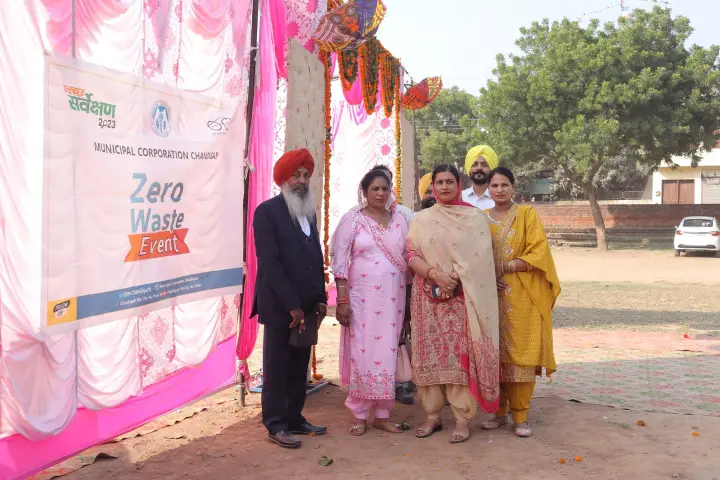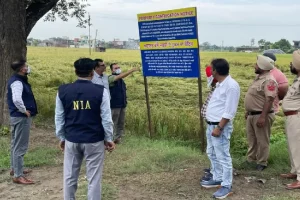Public events like seminars, workshops and weddings lead to a lot of wastage. Now taking a lead the Chandigarh Municipal Corporation demonstrated how zero-waste events can be held.
In a first the civic body hand-held the zero-waste wedding of Manjeet Kaur, who is a resident of Khuda Ali Sher and daughter of Jasbir Singh and ensured that complete processing of waste was done.
Instead of using plastic plates and cups for food and beverages stainless steel plates and glasses were used. To enable the guests to clean their hands, sanitisers were placed at eating tables and snack counters.
Using the principles of reduce, reuse and recycle to secure maximum resource recovery, the CMC in collaboration with Chandigarh Smart City Ltd organised a workshop on Viksit Bharat-Reaching the Last Mile at Hotel Mount View, making a completely zero waste event.
Cut out of Swachhata Mascot, Foot operated Sanitizer and Dustbins at the venue!@SwachhBharatGov @SwachSurvekshan @MoHUA_India #SwachhSurvekshan2023 #zerowaste #MissionSwachhChandigarh #SwachhSurvekshan2023Chandigarh #SwachhAmritMahotsav pic.twitter.com/DYHjyZFkpB
— Municipal Corporation Chandigarh (@MCChandigarh) November 2, 2022
The aim of the event was to create awareness about the ban and complete elimination of single-use plastic. Registration for the workshop was QR based thus avoiding paper documentation while information about it was displayed using LED screens instead of plastic boards and flex hoardings.
Sharing more information about this initiative, CMC Commissioner Anindita Mitra at the event sufficient sanitation workers were deployed along with a waste collection vehicle while water sprinklers were used to cut down on dust pollution.
Further there was provision for twin litter bins – green for wet waste and blue for dry waste — and gender segregated toilets/mobile toilet vans. Waste was collected at regular intervals and transported in a segregated manner.
No plastic glasses, cups, plates at Viksit Bharat-Workshop, only glass crockery used !!@SwachhBharatGov @SwachSurvekshan @MoHUA_India #SwachhSurvekshan2023 #MissionSwachhChandigarh #zerowaste #SwachhAmritMahotsav pic.twitter.com/PnrFM0kwuR
— Municipal Corporation Chandigarh (@MCChandigarh) November 2, 2022
No plastic was used at the event and the details of the workshop were printed on eco-friendly paper material while for decoration natural flowers were used and these were later composted.
To provide access to everyone at the event, the venue was made specially-abled friendly.
She added that as public events pose a challenge in terms of generating waste and their subsequent disposal it was necessary to conduct them on zero-waste principles.




















